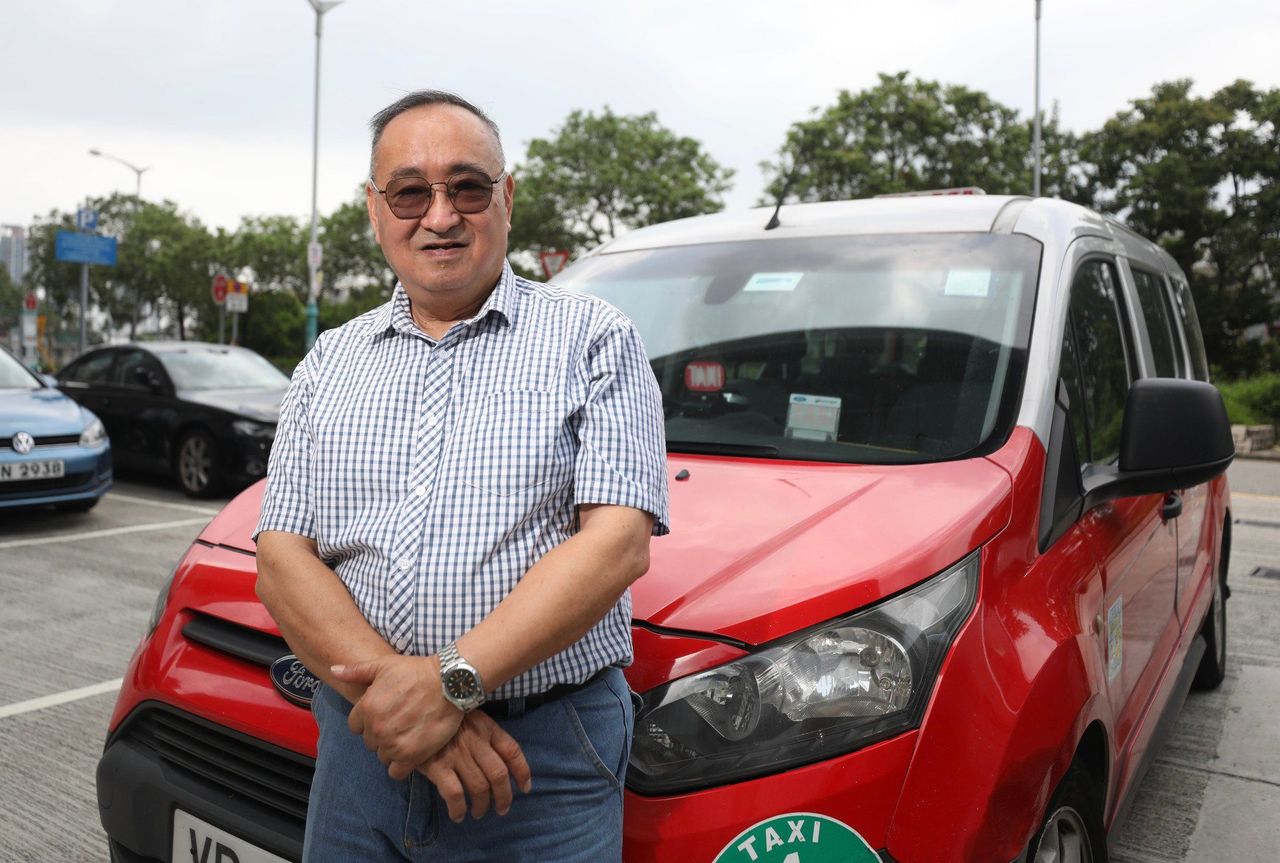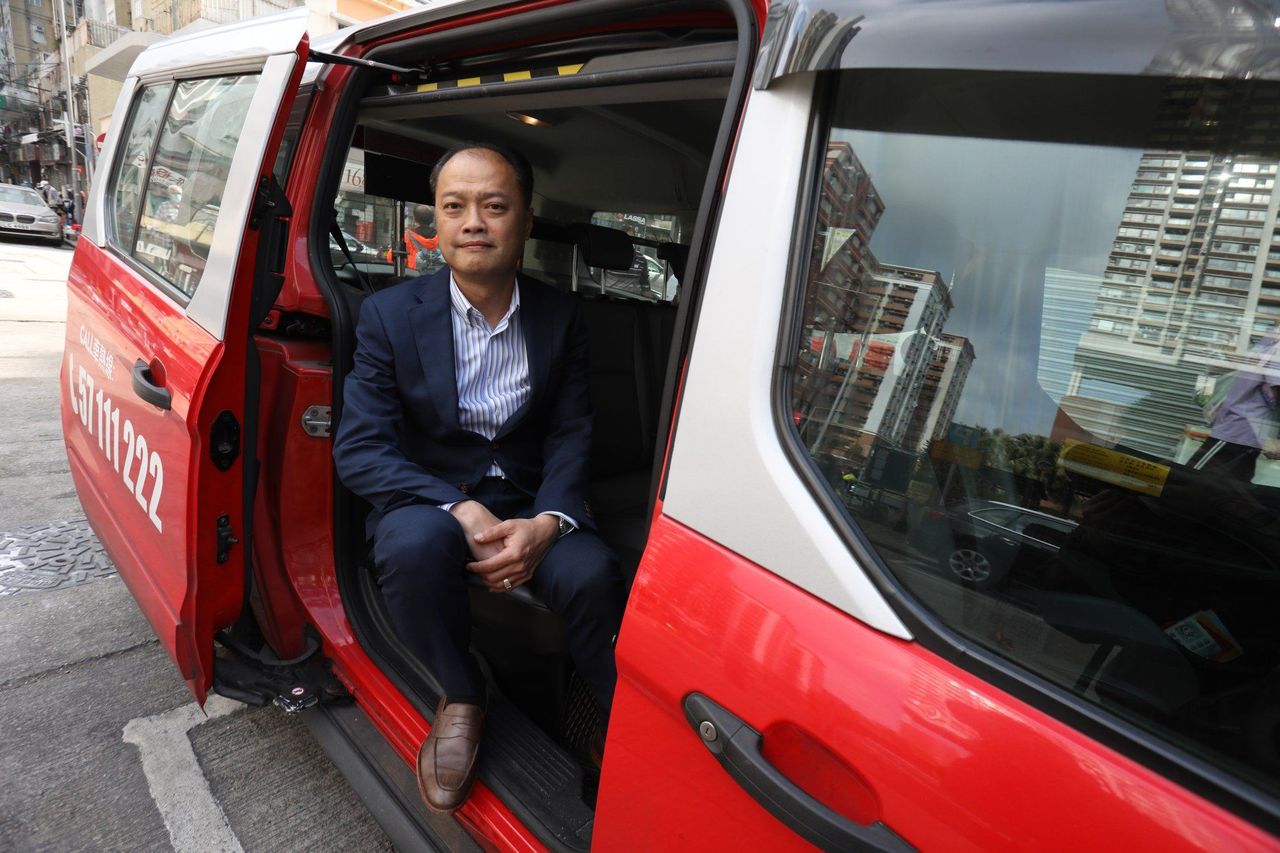Hong Kong News

Hong Kong targets greater uptake of electric taxis by introducing more models
More models of fully electric taxis will be introduced in Hong Kong later this year, authorities have revealed, offering greater options for an industry that currently only operates five such vehicles in the city.
A spokeswoman for the Environment and Ecology Bureau told the Post the government had been liaising with manufacturers about the e-taxi models they could provide. Currently only one type is offered in Hong Kong, which is built by Shenzhen’s BYD Auto.
“Several manufacturers are preparing to produce e-taxi models suitable for Hong Kong later this year,” the spokeswoman said.
“With more taxi models available in the market, fair market competition can be promoted, driving down the market price. The trade can test out the models that are suitable for their operations.”
The government’s reluctance to introduce more types of the vehicles, a lack of charging facilities and networks, and insufficient incentives have been blamed for the industry’s slow transition to e-taxis.
Official figures showed that by the end of April this year, there were only five fully electric taxis in Hong Kong, accounting for less than 1 per cent of the 18,163 vehicles operating in the trade. Authorities have so far only approved the trial of 26 e-taxis under the New Energy Transport Fund subsidy scheme, including 23 new-generation vehicles. Two of those subsidised urban e-taxis have commenced operation since September 2022 and January this year, respectively.
An earlier pilot scheme starting in 2013 ended in failure, with cabbies complaining of a shortage of charging facilities and long powering up times.
Under the government’s road map on the use of electric vehicles, new purchases of petrol cars will be phased out by 2035 with the ultimate goal of the city being carbon neutral by 2050.
The government is expected to reveal its timeline and concrete measures for adopting commercial electric vehicles in 2025, while Chief Executive John Lee Ka-chiu set out in his policy address last year a medium-term target of introducing about 3,000 e-taxis by the end of 2027.
To further promote the adoption of e-taxis, the authorities have proposed a loan scheme providing a 100 per cent guarantee for the trade to switch to the vehicles at a loan cap of HK$350,000 (US$44,710) per vehicle under a 10-year repayment period. The scheme is expected to be launched in the middle of this year.
However, industry leaders have called for authorities to put in place further support measures and more options of electric vehicle models to encourage operators to make the switch.
 Taxi operator Wong Wing-chung, chairman of Northwest Area Taxi Drivers & Operators Association.
Taxi operator Wong Wing-chung, chairman of Northwest Area Taxi Drivers & Operators Association.
Taxi operator Wong Wing-chung, chairman of Northwest Area Taxi Drivers & Operators Association, said the government needed to introduce more e-taxi model options if it wanted to see more companies choosing the vehicles. He urged officials to consider designs that had swappable batteries to supplement regular charging.
Wong said his attempts to use e-taxis fell through twice between 2013 and 2017 because of poor battery performance and long charging times, among other energy-related factors. The failures resulted in losses of more than HK$500,000 in addition to lost income, he said.
“The lack of e-taxi models and charging facilities has deterred operators from switching to e-taxis. The government should be open minded and allow e-taxis with swappable batteries to operate in Hong Kong, which can reduce the need to build supercharging stations at a high cost,” he said.
There were only 5,434 chargers in public and private locations at the end of last year, making for a ratio of almost one for every 10 vehicles. They comprised 2,983 medium-speed chargers that take about three to four hours and cost HK$30 to HK$50 for an electric car to be fully charged, and 998 faster ones that require 45 minutes to an hour and cost about HK$100.
Wong also warned of the risks of the 100 per cent guarantee loan scheme, saying taxi operators could still face bankruptcy if they failed to make the repayments as a result of underperformance of the vehicles.
 Chau Kwok-keung, chairman of the Hong Kong Taxi and Public Light Bus Association.
Chau Kwok-keung, chairman of the Hong Kong Taxi and Public Light Bus Association.
Chau Kwok-keung, chairman of the Hong Kong Taxi and Public Light Bus Association, said the loan scheme might not be attractive to the industry as the city still had a shortage of charging facilities for commercial vehicles.
“The problem is there is a lack of superchargers for e-taxis in Hong Kong, which means they need to be fully charged twice a day for around-the-clock operation,” he said.
The spokeswoman for the Environment and Ecology Bureau said a contractor would provide a trial of a rapid charging service for e-taxis this year. “The contractor will set up no less than 10 dedicated quick chargers for e-taxis on Lantau Island and in Sai Kung, which will be put into service in phases starting from the third quarter of this year,” she said.











